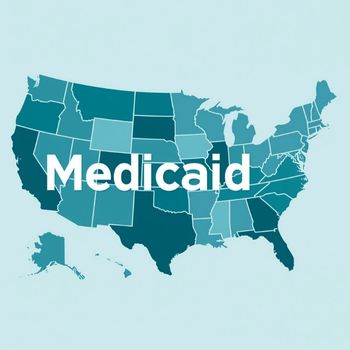Healthcare providers can enroll in Medicaid in any state, but they must complete a separate enrollment for each state where they intend to submit claims. This process can be complex and time-consuming, as each state has its own rules, documentation requirements, and revalidation schedules.
State Medicaid programs operate under federal oversight but are administered independently. As a result, the enrollment criteria, credentialing procedures, and approval timelines can vary widely. Staying compliant requires careful monitoring of evolving federal and state regulations.
Medicaid vs. Medicare enrollment
According to the Centers for Medicare & Medicaid Services (CMS), enrolling as a Medicare provider does not automatically qualify as a provider for Medicaid participation. Each state maintains its own Medicaid provider’s enrollment system and review standards.
The Affordable Care Act (ACA) established standardized screening and enrollment procedures for providers participating in Medicaid or the Children’s Health Insurance Program (CHIP). These measures are intended to reduce fraud, waste, and abuse by ensuring that only qualified and properly vetted providers are approved.
Can a provider be denied Medicaid enrollment?
Yes. States may deny or terminate Medicaid enrollment for various reasons, including:
- Failure to meet licensing or credentialing requirements
- Incomplete or inaccurate disclosure of ownership or control interests
- Adverse actions such as license suspension or Medicare exclusion
- Unresolved background check or sanction issues
Providers who are denied or terminated generally have appeal rights, though the process and deadlines differ by state.
Core Medicaid provider enrollment requirements
While specific requirements differ by jurisdiction, CMS outlines several baseline expectations that states must include in their programs. In general, providers should be prepared to:
- Complete a state-specific Medicaid enrollment application and submit it to the state agency.
- Provide required documentation, typically including: W-9 form and Tax Identification Number, active professional license or certification, Medicare Certification Number (if applicable), ownership and control disclosures
- Undergo background checks and disclose any healthcare-related criminal history or sanctions.
- Comply with additional screening requirements (site visits, fingerprinting, or revalidation reviews).
- Allow for a 60- to 90-day processing period depending on the provider type and state.
- Revalidate enrollment every five years (or more frequently if required by the state).
Best practice: Providers should maintain a centralized credentialing database or vendor-supported tracking system to manage multiple state enrollments and renewal deadlines
Enrollment for ordering, prescribing, and referring (OPR) providers
Under ACA requirements, states must ensure that all ordering, prescribing, or referring (OPR) providers are enrolled in Medicaid. OPR providers are not required to bill Medicaid directly or appear in provider directories, but they must be actively enrolled for their prescriptions, orders, or referrals to be reimbursed.
This rule applies primarily to fee-for-service Medicaid, though some managed care organizations (MCOs) also enforce OPR validation.
Several states, including Indiana, Georgia, and Connecticut, have implemented streamlined enrollment processes for OPR-only providers, allowing faster onboarding while maintaining compliance.
Best practices for successful Medicaid enrollment
Out-of-state Medicaid enrollment remains one of the most administratively challenging areas for hospitals and physician groups.
Each state requires unique forms, credentials, and attestations, often including personally identifiable information such as Social Security numbers and driver’s licenses for owners or board members.
To improve success rates and minimize denials:
- Implement a centralized enrollment management system to track active Medicaid IDs, renewal dates, and associated provider credentials.
- Educate internal stakeholders (board members, providers, compliance officers) on why personal disclosures are required and how data is protected.
- Verify all provider identifiers regularly, including NPI, taxonomy codes, and Medicare PTAN/CCN, to ensure alignment across systems.
- Conduct quarterly audits to identify expiring enrollments or pending revalidations.
- Partner with specialized enrollment and complex claims experts who maintain current knowledge of evolving state and federal requirements.
Simplifying Medicaid enrollment through expert partnership
Keeping pace with 50 different state Medicaid systems requires both expertise and operational capacity. Success depends on timely enrollment, ongoing maintenance, and proactive monitoring of regulatory changes that impact reimbursement.
At EnableComp, we help healthcare organizations navigate this complexity by providing:
- Nationwide expertise in Medicaid enrollment
- Data-driven analytics to identify and resolve provider-related claim denials
- Advanced credentialing management tools and compliance oversight
- End-to-end support for billing, collections, and revalidation
By partnering with EnableComp, providers can reduce administrative burden, improve accuracy, and focus on patient care — while we handle the evolving challenges of Medicaid enrollment and cross-state compliance.
Final word
While it’s possible for healthcare providers to enroll in all 50 state Medicaid programs, doing so requires strategic planning, robust process controls, and expert support. With the right partner and systems in place, multi-state Medicaid participation can be both compliant and sustainable.





























